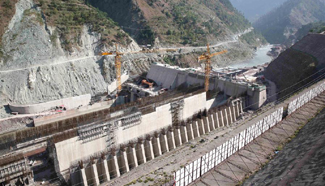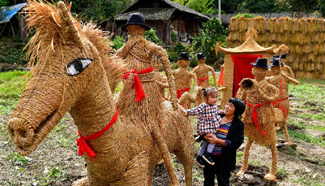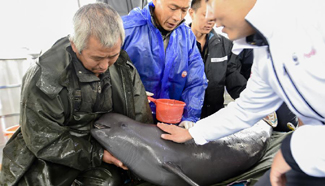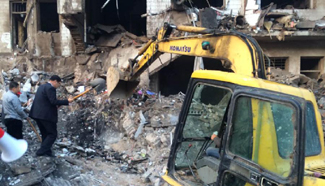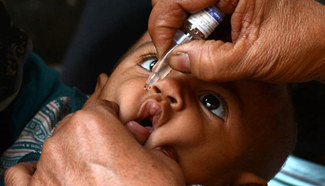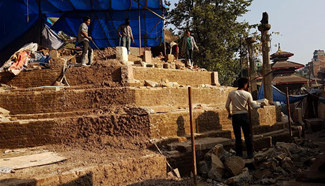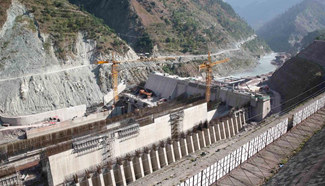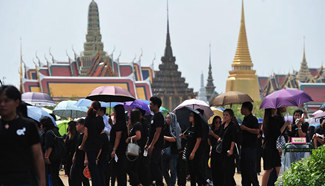
Survivors walk towards the evacuation center to get relief goods after super Typhoon Haiyan battered Tacloban city, central Philippines on Nov. 10, 2013. (REUTERS/Romeo Ranoco)
WASHINGTON, Oct. 24 (Xinhua) -- Dementia should be considered a health risk for elderly survivors of natural disasters, a new study led by Harvard University researchers suggested Monday.
It found the number of elderly people with symptoms of dementia tripled after the 2011 tsunami in Japan, with those who were uprooted from damaged or destroyed homes and who lost touch with their neighbors at most risk.
"In the aftermath of disasters, most people focus on mental health issues like PTSD (post-traumatic stress disorder)," Hiroyuki Hikichi, research fellow at Harvard T.H. Chan School of Public Health and lead author of the study, said in a statement.
"But our study suggests that cognitive decline is also an important issue. It appears that relocation to a temporary shelter after a disaster may have the unintended effect of separating people not just from their homes but from their neighbors--and both may speed up cognitive decline among vulnerable people."
The study was published online by the U.S. journal Proceedings of the National Academy of Sciences.
The Harvard Chan researchers, working with colleagues in Japan, were able to conduct a "natural experiment" among a group of elderly residents of the coastal city of Iwanuma, located about 80 kilometers west of the earthquake epicenter, where nearly half the land area was inundated by the tsunami.
Seven months before the disaster, elderly residents of Iwanuma had been surveyed about their health as part of an ongoing study of aging called the Japan Gerontological Evaluation Study. Two-and-a-half years after the tsunami, the researchers conducted a follow-up survey among the same group.
Out of 3,566 survivors of the tsunami disaster aged 65 or older -- some who were able to remain in their homes and some who were forced out -- 38.0 percent said they lost relatives and/or friends and 58.9 percent reported property damage.
In the pre-tsunami survey, 4.1 percent of respondents had been assessed with dementia symptoms; after the tsunami, the percentage jumped to 11.5 percent.
In addition, the percentage of people who reported not interacting with their neighbors -- not even with greetings -- nearly doubled, from 1.5 percent to 2.9 percent.
They found those who wound up in temporary housing after their houses were either destroyed or sustained major damage had the highest levels of cognitive decline.
"There was a strong dose-response association: People whose houses were more severely damaged experienced more cognitive decline," said the study, noting that depression and declines in informal social interactions with friends and neighbors appeared to play a role in the link.
By contrast, loss of relatives and/or friends did not seem to significantly impact cognitive abilities, it found.
As a result, "cognitive decline should be added to the list of health risks faced by older survivors of disaster," the study concluded.



